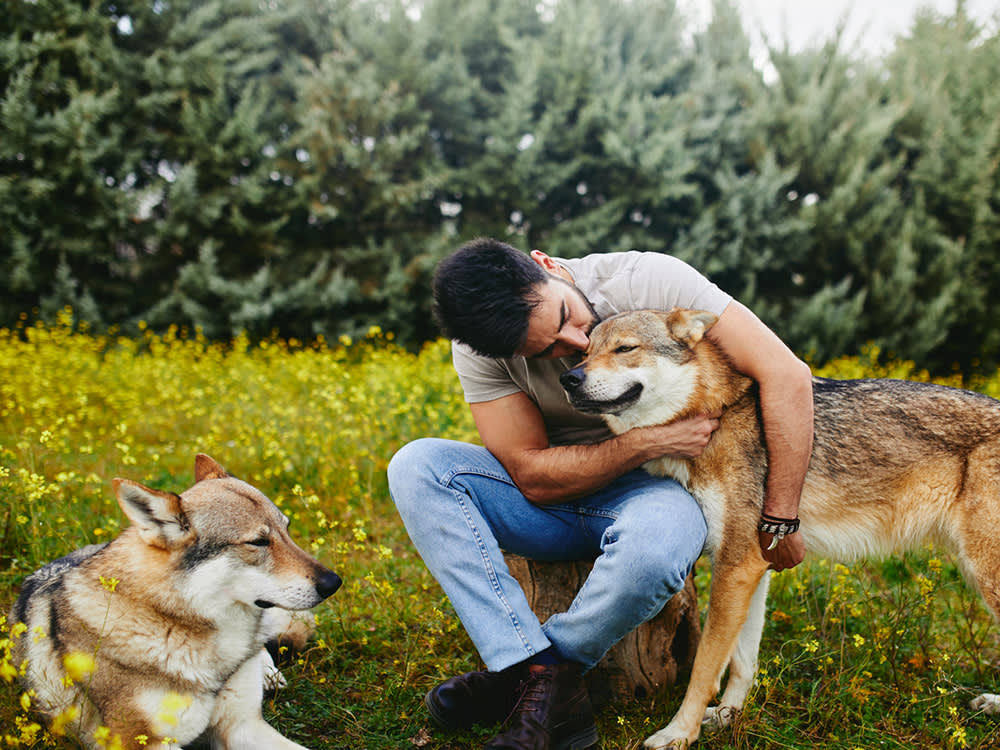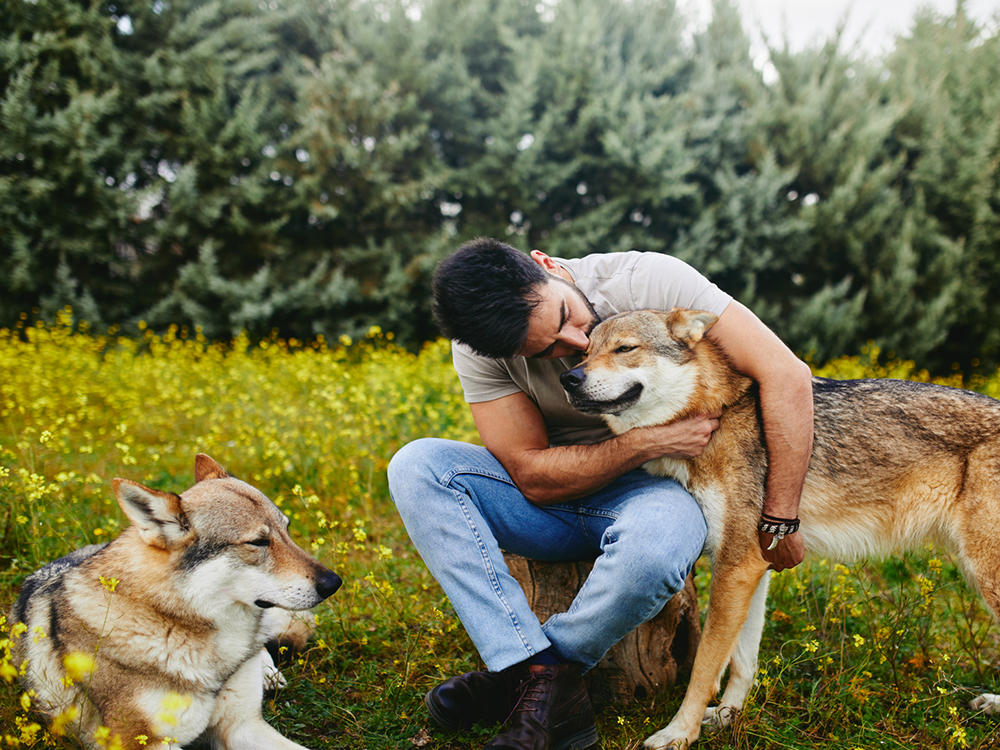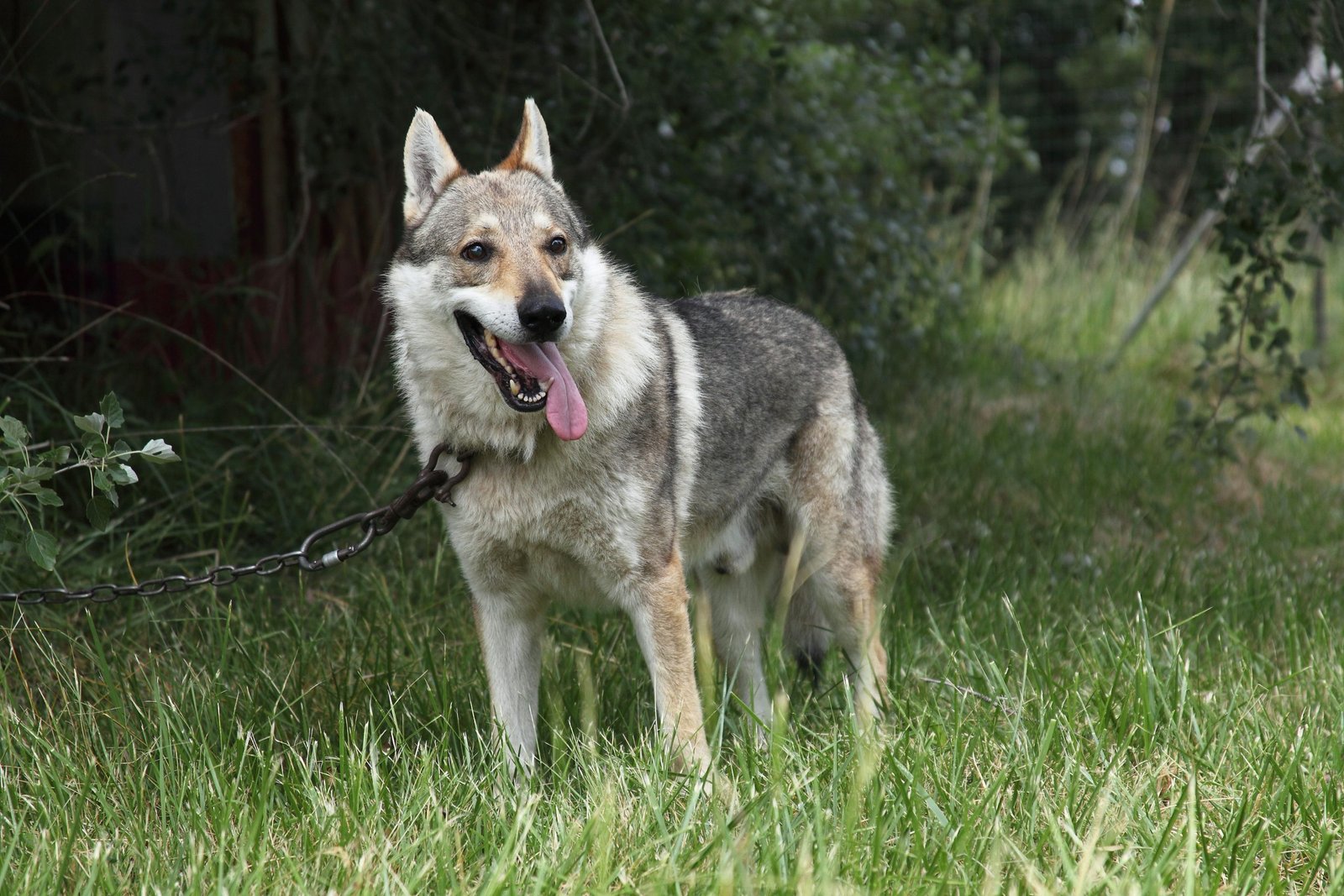Keeping a Wolf Dog as a pet is not recommended due to the breed’s specific needs and potential risks. Wolf dogs require a lot of space, exercise, and special care, making them challenging to keep in a home or small yard.
Additionally, they can be illegal in some states and may pose a liability. These hybrid dogs also have health issues that need to be addressed. While wolves are sometimes kept as exotic pets, they are not as tractable as domesticated dogs and require a greater amount of effort to ensure reliability.
Overall, it is best to consider other dog breeds that are more suitable for family pets.

Credit: www.thewildest.com
Pros And Cons Of Keeping A Wolf Dog As A Pet
Owning a wolf dog can be an exciting and unique experience for some pet owners. However, it is crucial to understand the pros and cons associated with keeping a wolf dog as a pet. In this article, we will discuss the advantages and disadvantages of owning a wolf dog, helping you make an informed decision about whether this is the right pet for you.
Advantages Of Owning A Wolf Dog
While wolf dogs can present certain challenges, there are also benefits to owning these majestic creatures. Here are some advantages:
- Uniqueness: Wolf dogs are undeniably unique pets. They combine the beauty and intelligence of a wolf with the loyalty and companionship of a dog, making them stand out among other pets.
- Connection with Nature: Owning a wolf dog can provide a deep connection with nature. These animals possess many natural instincts and behaviors that can be fascinating to observe and learn from.
- Guardian Instincts: Wolf dogs have strong guardian instincts, making them excellent watchdogs. They are typically protective of their family and property, providing a sense of security.
- Physical Agility: Wolf dogs are highly agile animals. They excel in activities such as hiking, running, and agility training, making them ideal companions for outdoor enthusiasts or those seeking an active lifestyle.
- Intellectual Stimulation: As hybrid animals, wolf dogs possess a combination of wolf and dog intelligence. This intelligence can provide mental stimulation for both the owner and the pet, leading to a stronger and more fulfilling bond.
Disadvantages Of Owning A Wolf Dog
While owning a wolf dog can be rewarding, there are also significant challenges and potential drawbacks. Here are some disadvantages:
- Space Requirements: Wolf dogs require ample space to roam and exercise. As highly active animals, they may feel restless and frustrated in confined living areas.
- Exercise Needs: Wolf dogs have high exercise needs. They require daily physical activity to maintain their physical and mental well-being, which can be demanding for some pet owners.
- Legality: It’s important to check the laws and regulations in your area regarding wolf dogs. In some states or jurisdictions, owning a wolf dog may be illegal or heavily restricted.
- Special Care: Wolf dogs have specific dietary and socialization needs. They require a specialized diet and early socialization to help them adapt to their domestic environment.
- Liability: Due to their wild ancestry, wolf dogs can potentially pose a liability risk. They may have unpredictable behaviors and may not be suitable for households with young children or other pets.
- Health Issues: Wolf dogs are susceptible to certain health conditions, including certain genetic disorders. Regular vet check-ups and proper care are essential to ensure their well-being.
Before deciding to bring a wolf dog into your home, it is important to carefully consider both the advantages and disadvantages. Understanding the unique responsibilities and challenges associated with owning a wolf dog will help you make an informed decision about whether this extraordinary pet is right for you.
:strip_icc()/pet-wolfdogs-1237356_FINAL-3fceee6a9cb94145a11210fddead5d79.jpg)
Credit: www.thesprucepets.com
Legal Considerations For Keeping A Wolf Dog
Before deciding to keep a wolf dog as a pet, it’s important to understand the legal considerations involved. In certain states, owning a wolf dog may be illegal, and in others, specific permits and regulations may be required. It’s crucial to be aware of these legal restrictions and take them into account when considering the suitability of a wolf dog as a pet.
States Where Wolf Dogs Are Illegal
There are several states where owning a wolf dog is illegal. These states typically have laws in place due to concerns about the potential danger posed by wolf dogs and the need to protect native wildlife populations. It’s important to research and understand the laws in your specific state or region before acquiring a wolf dog as a pet. The following states have restrictions or complete bans on owning wolf dogs:
- Alaska
- Connecticut
- Georgia
- Hawaii
- Illinois
- Kansas
- Kentucky
- Massachusetts
Special Permits And Regulations
In states where owning a wolf dog is legal, there may still be special permits and regulations in place. These requirements are intended to ensure that wolf dogs are kept in a safe and responsible manner. Some common regulations include:
- Obtaining a special permit or license from the local wildlife or exotic animal control department
- Maintaining secure fencing and enclosures to prevent escapes
- Following specific care and feeding guidelines
- Regular health and behavioral evaluations conducted by a qualified professional
It’s important to familiarize yourself with these regulations and ensure that you can meet all the necessary requirements before bringing a wolf dog into your home.
Caring For A Wolf Dog
Caring for a wolf dog as a pet requires special care due to their wild instincts. They need ample space, regular exercise, and proper training. Consider the legal restrictions and potential liability before deciding to keep a wolf dog as a pet.
Exercise And Space Requirements
Proper exercise and adequate space are essential for the well-being of a wolf dog. These animals have inherited the need for physical activity from their wild wolf ancestors. In order to meet their exercise needs, owners should provide them with ample space to roam and explore. A securely fenced yard or an outdoor enclosure is necessary to prevent escape attempts and ensure their safety.
Wolf dogs require an active lifestyle, and regular exercise is crucial to prevent boredom and destructive behavior. Daily walks, runs, or hikes for at least an hour are recommended. Engaging them in activities like agility training, obedience training, or dog sports can also help in fulfilling their physical and mental stimulation requirements.
Special Dietary Needs
When it comes to feeding a wolf dog, a special diet is required to meet their specific nutritional needs. A high-quality, protein-rich diet is essential to support their muscular build and energy levels. A diet specifically formulated for large or active breeds is recommended.
It is important to consult with a veterinarian or an experienced wolf dog owner to determine the most suitable diet for your pet. Additionally, providing them with raw meat, bones, and supplements like omega-3 fatty acids can contribute to their overall health.
Behavior And Training Challenges
Due to their unique genetic makeup, wolf dogs present behavior and training challenges that differ from typical domestic dogs. It is important to understand that they possess characteristics of both wolves and dogs, which can result in certain instinctive behaviors that may be difficult to manage.
Wolf dogs may exhibit a high prey drive, territorial behavior, and a strong need for social hierarchy. Early socialization and consistent, positive reinforcement-based training from an experienced handler are vital to ensure their behavior remains manageable.
It is important to note that wolf dogs require a firm, yet gentle approach to training. Harsh or punitive training methods can be counterproductive and may exacerbate their natural instincts.
Health Concerns For Wolf Dogs
When considering whether to keep a wolf dog as a pet, it’s important to be aware of the potential health concerns that come with owning this unique hybrid breed. Wolf dogs are a combination of domestic dogs and wolves, resulting in a complex mix of genetics that can lead to specific health issues. Understanding these health concerns is crucial in providing proper care for your wolf dog. Here are some of the key health considerations to keep in mind:
Genetic Health Issues
Due to the hybrid nature of wolf dogs, they are prone to certain genetic health issues. One of the main concerns is hip dysplasia, a condition where the hip joint doesn’t develop properly, causing pain and mobility issues. Another common genetic issue is degenerative joint disease, which can lead to arthritis and joint stiffness.
Additionally, wolf dogs may inherit a susceptibility to certain autoimmune disorders, such as autoimmune thyroiditis, which affects the function of the thyroid gland. This can result in various symptoms, including weight gain or loss, lethargy, and skin problems.
It’s important to note that these genetic health issues can vary in severity from one individual to another. Regular veterinary care and health screenings are essential in identifying and managing any potential genetic health issues in your wolf dog.
Regular Veterinary Care
When you decide to bring a wolf dog into your home, it’s crucial to prioritize regular veterinary care. Due to their hybrid nature and unique genetic makeup, wolf dogs require specialized attention from experienced veterinarians who are familiar with the specific health concerns of this breed.
Regular check-ups and preventive care are vital in keeping your wolf dog healthy. This includes vaccinations, parasite prevention, dental care, and routine bloodwork to monitor their overall well-being. Your veterinarian can also provide guidance on appropriate nutrition and dietary supplements tailored to the specific needs of your wolf dog.
Additionally, regular veterinary care allows for early detection of any potential health issues or changes in your wolf dog’s condition. Prompt intervention and treatment can improve outcomes and minimize the impact of health concerns on their overall quality of life.
By providing consistent and comprehensive veterinary care, you can help ensure the long-term health and well-being of your wolf dog.
Alternatives To Owning A Wolf Dog
Considering the legal restrictions, space, exercise requirements, special care, and potential liability involved, there are several alternatives to owning a wolf dog as a pet. It is important to thoroughly research and consider these factors before deciding if a wolf dog is the right companion for you.
While the allure of owning a wolf dog can be strong, it’s important to consider the many challenges and responsibilities that come with it. Fortunately, there are some alternatives that can provide similar characteristics and fulfill your desire for a majestic and loyal companion.
Similar Breeds To Consider
If you’re fascinated by the idea of owning a wolf dog but unsure about the commitment, there are other breeds that share similar traits. These breeds may be a better fit for your lifestyle and provide a suitable alternative:
- German Shepherd: Known for their intelligence and loyalty, German Shepherds resemble wolf dogs in appearance and have a strong protective instinct.
- Northern Inuit Dog: Originally bred to resemble wolves for the “Game of Thrones” series, these dogs are gentle and make great family pets.
- Siberian Husky: With their striking blue eyes and wolf-like appearance, Siberian Huskies are known for their friendly and outgoing nature.
If you’re specifically looking for large wolf dog breeds, the following options might be of interest:
| Wolf Dog Breed | Similar Qualities |
|---|---|
| Czechoslovakian Wolfdog | Highly intelligent and athletic |
| Saarlooswolfhond | Proud and independent |
| Utonagan | Strong pack instinct and gentle demeanor |
Other Options For Wolf Dog Enthusiasts
If you’re still captivated by the idea of wolfdogs but concerned about their suitability as pets, there are alternative ways to indulge your love for these magnificent creatures:
- Volunteer at a Wolfdog Sanctuary: Many sanctuaries offer opportunities for wolf dog enthusiasts to volunteer and interact with these beautiful animals. It allows you to observe and learn about them without the commitment of ownership.
- Support Conservation Efforts: By supporting organizations that work towards preserving wolf populations and their habitats, you can make a positive impact and contribute to the conservation of these remarkable creatures.
- Education and Advocacy: Educate yourself and others about the responsibilities and challenges of owning a wolf dog. By sharing your knowledge and experiences, you can promote responsible ownership and help others make informed decisions.
Remember, owning a pet is a lifelong commitment, and it’s essential to choose a companion that suits your lifestyle and abilities. Exploring these alternatives can help satisfy your fascination with wolf dogs while ensuring the best welfare for both you and the animals you admire.

Credit: www.thewildest.com
Frequently Asked Questions For Should You Keep A Wolf Dog As A Pet?
Are Wolf Dogs Good Family Dogs?
Wolf dogs are not recommended as family pets due to their wild nature and specific care requirements. They need a lot of space and exercise and may have a high prey drive towards small animals, including other dogs. Additionally, they can be a liability and have health issues.
Would A Wolf Make A Good Pet?
Wolves do not make good pets because they are not as tractable as dogs and require more effort for reliability. They may tear up your house and are difficult to train. It is not recommended to keep them as pets due to their wild nature and potential danger to humans and other animals.
Is It Ok To Domesticate Wolves?
Domesticating wolves is not recommended. They are wild animals and do not make good pets. They require a lot of space, exercise, and special care. They can also be a liability and have health issues. It is best to leave wolves in their natural habitat.
Is A Wolf Pup A Good Pet?
Wolf pups are not good pets. They are wild, difficult to train, and can tear up your house. They require a lot of space, exercise, and special care. It is also important to note that they can be a liability and have health issues.
Conclusion
Owning a wolf dog as a pet requires careful consideration and proper understanding of their unique needs. They require a lot of space and exercise, making them unsuitable for small homes or yards. Additionally, their legality in certain states and the special care they require should be taken into account.
They can also pose liability issues and have specific health concerns. Ultimately, it is important to assess whether you can provide the necessary resources and meet the requirements before deciding to keep a wolf dog as a pet.

